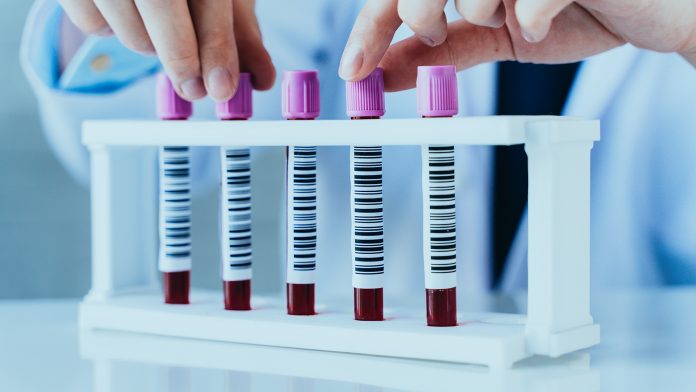
Researchers have developed a new blood test with the aim of improving the prostate cancer screening process.
Researchers at Karolinska Institutet in Sweden developed the Stockholm3 blood test as an additional tool to complement their previous research findings that magnetic resonance imaging (MRI) could reduce overdiagnoses and therefore improve prostate cancer screening. In the new study, they found that the blood test can reduce the number of MRIs performed by a third while further preventing the detection of minor, low-risk tumours.
The latest findings have been published in the Lancet Oncology.
Current screening methods for prostate cancer– prostate-specific antigen (PSA) tests combined with traditional biopsies – can result in unnecessary biopsies and the detection of numerous minor and low-risk tumours (overdiagnosis). Consequently, Lithuania is the only country introduce a nationwide prostate cancer screening programme.
Stockholm3 blood test
The findings from the initial study by the researchers, STHLM3MRI, indicated that overdiagnosis could be reduced by substituting traditional prostate biopsies with magnetic resonance imaging (MRI) and targeted biopsies. The results from the new research show that the addition of the Stockholm3 test can be an important complement. The blood test uses an algorithm to analyse a combination of protein markers, genetic markers, and clinical data.
Tobias Nordström, Associate Professor of Urology at the Department of Clinical Sciences, Danderyd Hospital at Karolinska Institutet, who is responsible for the STHLM3MRI study, said: “Overall, our studies show that we have identified the tools needed to be able to carry out effective and safe screening for prostate cancer. After many years of debate and research, it feels fantastic to be able to present knowledge that can improve healthcare for men.”
The STHLM3MRI randomised study was conducted between 2018 and 2021 with 12,750 male participants from Stockholm County. The participants provided an initial blood sample for PSA analysis and analysis using the new Stockholm3 test. Men with test results showing elevated PSA levels were then randomly selected for traditional biopsies or MRI. In the MRI group, biopsies were conducted strictly on suspected tumours identified by MRI.
Martin Eklund, Associate Professor at the Department of Medical Epidemiology and Biostatistics, Karolinska Institutet, with joint responsibility for the STHLM3MRI study, said: “The availability of MRI in healthcare will be a limiting factor. We now show that a novel blood test as adjunct to MRI can reduce the number of MRIs performed by a third. Compared with traditional screening, overdiagnosis is reduced by as much as 69%. At the same time, the number of biopsies is halved, while we can find just as many clinically significant tumours.”
“Separate use of the Stockholm3 test and MRI has previously been shown to be cost-effective. We have now analysed the cost-effectiveness when these tools are combined and will shortly report exciting results from that analysis,” Associate Professor Nordström concluded.







